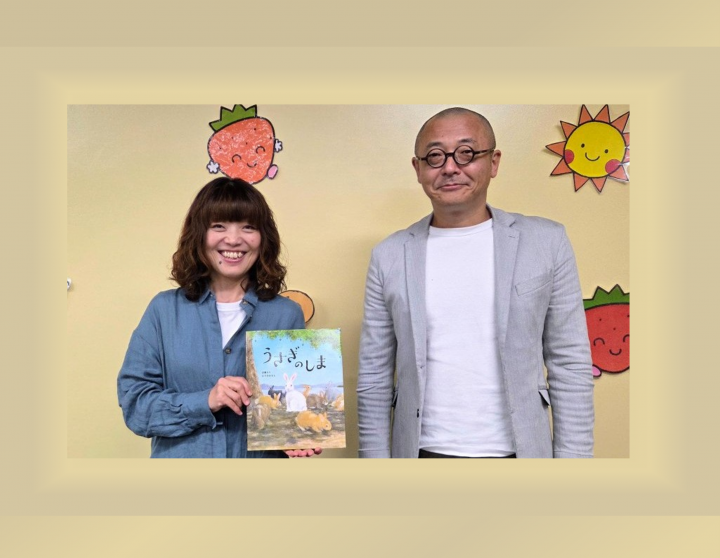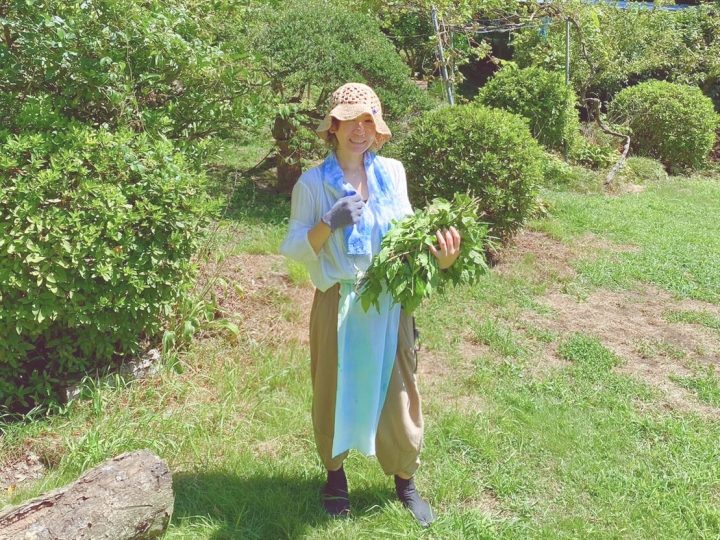Stylish and fun! Make natural and eco-friendly choices in your life

Minimal living tokyo. is a select shop for household goods and cosmetics, and offers products that are environmentally friendly and healthy, with the hope that making stylish and fun eco-friendly choices in everyday life will become the norm.
This time, we spoke with Eri Akai, the shop's representative.

(NeWoman YOKOHAMA Limited Time Pop-Up [Love Action])
-Please tell us about the select shop "minimal living tokyo."
Eri: Until recently, there were very few organic cosmetics and household goods with a zero-waste philosophy in Japan, and not many stores carried them. In fact, some people had trouble finding products that were kind to the environment and people, or didn't know how to use them and found it difficult to find the right product for them.
We want to reduce and improve the amount of disposable plastic and packaging waste used in cosmetics and miscellaneous goods.
We want you to enjoy using products that are easy to use and natural, while also being mindful of the environment.
We want you to feel confident when purchasing products through our filters.
With this in mind, in 2019, I teamed up with a friend I met in Canada to launch a select shop that stocks products based on the zero-waste concept.

(Photo taken in Tofino, BC, Canada in 2013, when I led a tour of the rubble caused by the 3/11 earthquake organized by the Japanese Ministry of the Environment.)
-You seem to value the environment. What made you start thinking about environmental issues?
Eri: I lived in Vancouver, Canada for 14 years. Vancouver is known as a green city, and there is no trash on the streets. The entire city is working to address environmental issues. Shopping is also done by selling items naked or by weight, and when buying food, you bring your own containers and only buy as much as you need. I also enjoyed carefully choosing what I needed. Living such a sustainable lifestyle was a given, and I even studied sustainable fashion as a student, so when I returned to Japan, I experienced a "reverse culture shock" at the amount of disposable trash in Japan (laughs).
A major turning point for me was the Great East Japan Earthquake that occurred while I was living in Vancouver in 2011. I regularly participated in charity work, and one year after the disaster, I even helped remove the large amount of debris that had washed up on the Canadian coast from the disaster area. As time passed, I was shocked to see the amount of debris that had reached such a distant country, and it made me very concerned about marine pollution. It made me realize once again that we can only continue to live our normal lives if we have a healthy global environment.

(Left Eli, Right Saina)
-Your shop concept is "zero waste." What is "zero waste"?
Eri: Zero waste means that although it is difficult to eliminate waste completely, we should be creative and rethink things from the production stage onwards so that they do not become waste.
The products we handle are also specialised in being environmentally friendly and sustainable, with the products themselves being circular, such as those that can ultimately be buried and returned to the soil or can be used repeatedly.
-Could you tell us how you first encountered the term "zero waste"?
Eri: After returning to Japan from Canada, I joined Patagonia Yokohama, an American company with environmental conservation as its corporate philosophy. I also personally worked on marine pollution issues with Canadian acquaintances, and later had the opportunity to work at the newly opened Patagonia Vancouver store.
At our Vancouver store, which is based on the concept of sustainability, the staff were actively working on zero waste actions. It was here that I first encountered the term, and it remains at the core of who I am today.
There were differences in the daily work of the local staff and the Japanese staff, but this was also an important learning experience, and two years after bringing the teachings of zero waste back to Japan, the Yokohama store became the first in Japan to obtain zero waste certification for apparel. Zero waste action is now spreading to stores nationwide.
-Do you have any particular preferences when selecting products?
Eri: I generally select simple and environmentally friendly items.
Products made by manufacturers that promote zero waste or products that contain a high proportion of organic ingredients.
No raw materials that put a strain on the environment are used.
It is vegan and does not contain any animal products or undergo animal testing.
The containers are plastic-free and can be recycled by burying them in the soil.
It's also important to know what message you want to convey through your products.
Of course, we also place importance on the ease of use, and we select only products that pass patch tests that take more than six months to complete, so that products that come into contact with the skin can be used safely by people with sensitive skin and children. We stock products that will make you feel confident in your purchase because this shop is trustworthy!
-Of the many products available, could you recommend some that are easy to incorporate?
Eli: Vegan dish block (solid dish soap)!
This plant-derived, vegan dishwashing detergent is popular for its rich foaming and cleaning power. It's environmentally friendly and user-friendly, yet lasts a long time: the regular size lasts for about two months, and the mega size for about seven to eight months.
It works well with cellulose, loofah sponges, and plant-based brushes, helping the detergent last longer.
In particular, the sponges made from loofahs grown without pesticides for 40 years in Toyama Prefecture are safe to use. They also last a long time, and when they can no longer be used, they can be buried and returned to the soil. Dishwashing detergent is something that most people use every day, so we think it's easy to incorporate it into your home.

(Vegan Dish Block)
- "Sustainable" was also the concept of the Patagonia Vancouver store. Recently, we've been hearing the word "sustainable" more and more in Japan, and it seems like interest and awareness is on the rise.
Eri: I think it's a great thing that people around the world are becoming more aware of sustainability. A career that was built with hard work, a dream home. Goals that we want to achieve and ambitions for the future cannot be achieved by human power alone. I believe that a good environment is essential. Living a sustainable life is a "natural thing" when you think about the future of the global environment.
In all aspects of life, food, clothing and shelter, we should be as environmentally conscious as possible, make fun choices that suit us and live happily without straining ourselves. By creating a world where such a lifestyle is considered "normal" and "natural," we hope to make people realize that environmentally friendly things are also kind to people.
I also hope that Japanese society will become a place where people can speak openly about their opinions.
-Please say a few words in closing.
Eri: I would be happy if people could realize through the products of "minimal living tokyo." that eco-friendly and sustainable living can be so much fun and so easy!
Instead of buying things because you want to live an eco-friendly life, buy only what you need when you need it, and use up everything you have now! I think this way of thinking is very important.
Learning one thing can change your awareness, which can then change the things you choose. I believe that increasing the number of people like this will lead to a change in the world.
Changing your mindset is a big step that anyone can take.
We want to continue to be a shop that inspires people to change their perspectives and attitudes.
"minimal living tokyo."
Instagram: here
Official website: here



